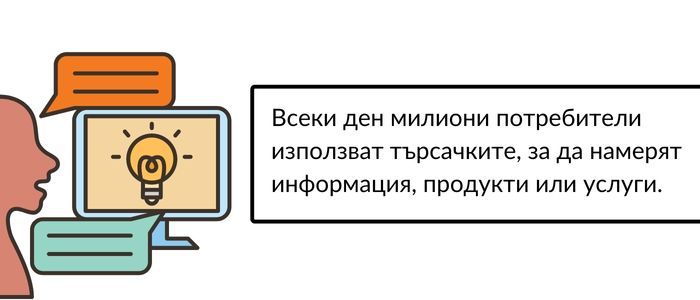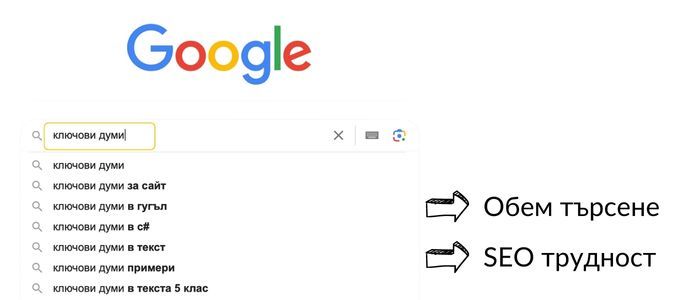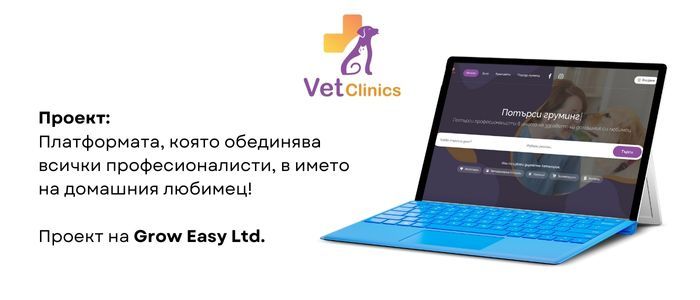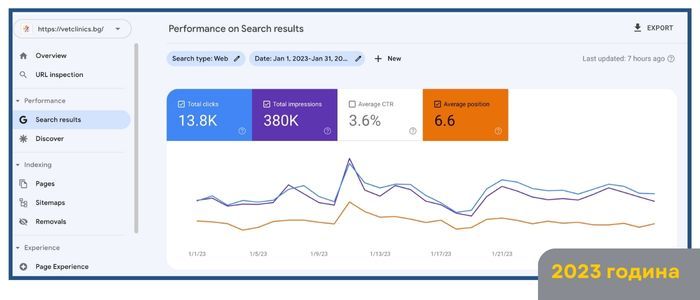Have you ever asked yourself - What is "SEO for articles" and why is everyone around you discussing the topic? In the world of digital marketing, this segment is assuming an increasingly significant role. Both you and many other entrepreneurs and marketers have an interest in showing up higher in Google search results. And there's a reason why!
By SEO optimizing articles, your business will attract more "hot traffic". You'll also increase your **visibility** and generate more revenue. But where do you start? Exactly how can article SEO assist your business?

Today's article from GrowEasyLtd.com is designed to give you detailed information and tips on SEO for articles. What is it? What techniques are used? How and why is it known as the key to user trust?
1. What is article SEO?
SEO for articles is a method that involves a number of strategies and techniques aimed at optimizing your website content to be better understood and prioritized by search engines. In other words, it helps search engines "understand" what your content is and rank it appropriately in search results.
Article SEO consists of two main components: on-page and off-page SEO. On-page SEO involves optimizing elements of your website, such as headings, subheadings, meta descriptions, article content, images, and website structure. On the other hand, off-page SEO involves activities outside of your website, such as link building, reputation management, and social media.
💡 Did you know that over 70% of Google clicks go to the first page results? You probably don't want to miss out on 70% of your potential customers.

Optimization is extremely important and directly tied to website performance, health and structure. That's why you often need to update, rebuild and add text to existing pages.
2. Do I need a "Blog" section?
In our practice, we often come across clients and partners who do not have or do not want to have a "Blog" or "News" section. However, it is important to note here that this is one of the limited opportunities to regularly share additional content in response to user demand.
This is where you could post useful, interesting, relevant and intriguing information for the user. Of course, in order to share content and have it rank higher in Google's search engine, you have to meet quite a few requirements, meet the norms of article writing and build authority on the platform (website).

We don't mean to mislead you, this is no easy task. But it is for these reasons that we bring out basic and extremely important factors to consider when SEO optimizing articles.
3. Why is article SEO important?
SEO for articles is critical to the success of a business. Not only does it help improve website visibility on search engines, but it also leads to higher engagement rates, more traffic, and better conversion.
Every day millions of users use search engines to find information, products or services. If your article is optimized correctly, it will appear at the top of search results, resulting in more visibility and more clicks. After all, users place a lot of trust in Google and the top rankers in its results. This, in turn, will increase your chances of attracting and retaining a greater number of potential customers.

Also, article SEO is an extremely valuable tool for building authority in your field. When your articles are well written and optimized, they can become a valuable resource for your audience, which will improve your reputation and the credibility of your business.
4. Analysis and feasibility study in SEO optimization of articles
At the core of article optimization is rooted in analysis. User search analysis that skillfully brings up keywords and phrases relevant to the business and niche. Through it, you will gain real insight into how the consumer perceives your business and what exactly they are typing into the search engine looking for your products or services.
Here, often times in practice, we surprise our clients with terms and phrases that have hundreds of times more searches than the main names of their product or service.

It is for this reason that we use a number of digital tools, extensions and mechanical techniques to derive a comprehensive list of keywords and phrases, the basis of future SEO strategy.
Use tools such as Google Keyword Planner, Ahrefs and others to do a qualitative analysis. They will help you find out which keywords are most relevant for your article and target audience.
Can keyword analysis change the direction of a business?
Case in point: Vetclinics.com - A digital directory of trusted veterinary clinics in your area.

The website was built with the idea of satisfying consumer demand and directing every pet owner to a trusted specialist, a veterinarian.
When we started the project, we knew that we couldn't buy a domain and have it conquer the top spots in the search engine tomorrow. Accordingly, we looked for different ways to reach a larger audience. We built a strategy, analyzed the market once more and started working on the content.
Here's our positioning data in November, 2021.
DON'T be fooled, those 26 clicks are from us!

What did we start doing next? We wrote original content that was seen as useful, interesting and important to every pet owner. For every user, part of our target group. That in itself is a vast niche, but we didn't just go there. We created another channel to promote the platform, for those who are yet to get a pet. This is how we came up with a section - Dog Breeds.
And here we are now, January, 2023.
- 500x more traffic
- 190x more views
- Over 150 words and phrases in the first position on Google

And do you think there's any point and value in SEO for articles?
5. What are the reasons for successful article SEO
Here are a few key components to pay attention to when writing an article on SEO and Google requirements.
Choose the right keywords
They are derived based on keyword analysis. These are words and phrases that users type into search engines to find the information, product or service they are looking for. Remember, this is a crucial factor in successful article optimization.
Optimize headlines and subheadlines
Your article titles and subtitles should contain your keywords and be engaging and informative. They play an important role in your website' s SEO on search engines and user engagement.
Use strong words and calls-to-action. This is the user's first impression of you. If the headline isn't good enough there is a high chance that it won't pique the user's interest and they won't click on it.
An important condition for headlines and sub-headlines is to follow a certain hierarchical structure. Use H1, H2 and H3, including the keyword in 70-80% of them.

Create quality content when SEO optimising articles
High quality content is essential for SEO. Your articles should be well-written, informative and useful to your audience.
They should also be unique and original, without duplicate or plagiarized elements. Google reports and penalizes plagiarized content.
Pay attention to the length of the text. Develop the article into a minimum of 800 words.
6. SEO best practices for articles
Use internal and external links
Including internal links (links to other pages on your website) and external links (links to other websites) can improve your article's SEO ranking. Internal links help improve website structure and page load times, while external links can increase your article's authority and credibility.
Carefully select reference sites for your website links. Often times these sites are insecure and without authority. This negatively affects your website and its search engine ranking.
Use readable URLs when SEO optimizing articles
The URLs of your articles should be short, clear and contain your keywords. They should give users and search engines an idea of your page's content before they even visit it.
Optimise images when SEO optimising articles
The images in your articles should be optimized for SEO by using descriptive file names, alt texts and compressing the images for faster loading.
By following these guidelines, you will be on your way to successful SEO optimization of your articles, which will help you achieve higher rankings in search results and attract more visitors to your website.

Although SEO can be a slow process, the results are long-lasting and can bring a significant increase in traffic to your website. It takes effort and dedication, but ultimately pays off with higher visibility on the internet and more traffic to your website.
